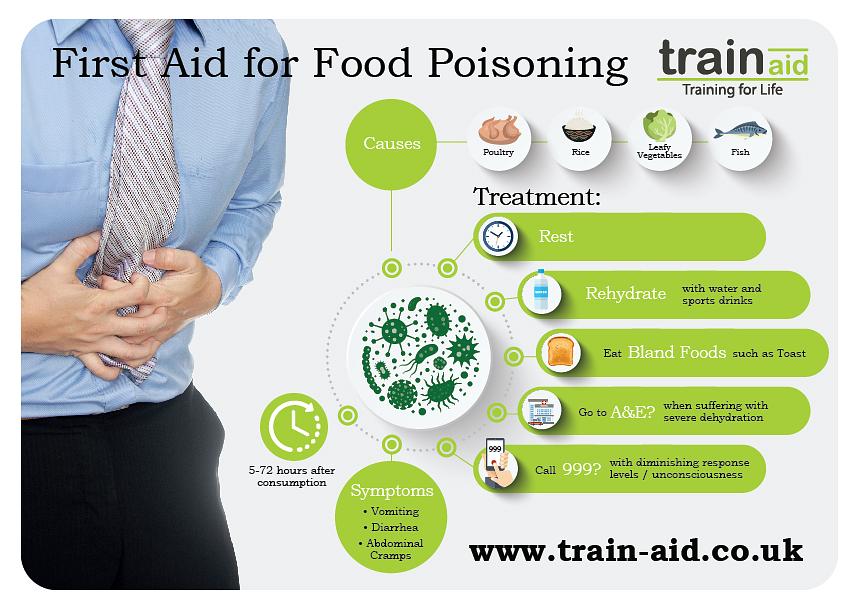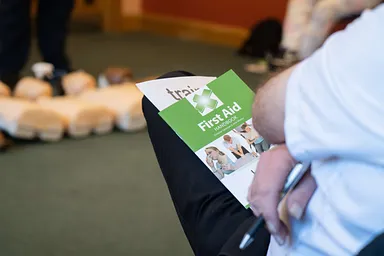There are in excess of 500,000 cases of food poisoning each year, which does not include unreported cases. Salmonella is the most deadly strand, contributing to around 2,500 hospital admissions per year (FSA).
Food poisoning will at the very least cause dehydration, in some cases severe and can be fatal in vulnerable groups such as the elderly and those with weak immune systems. First Aid can be useful to promote recovery and establish if professional medical assistance is required.
Symptoms
Symptoms can develop in around 5 - 72 hours after infection. Nausea and vomiting could be traced back to what the person ate in the previous period, which can help diagnose the condition. Undercooked poultry meat is the biggest culprit, alongside vegetables, fruits, nuts & seeds. Look out for any of the following symptoms:
- Nausea
- Diarrhea
- Abdominal cramps
- Vomiting
Do not panic if the above symptoms are present. Remember that infections like Norovirus (sickness bug) have nothing to do with food and will clear up themselves within a few days.
Treatment
Dehydration will have the biggest impact on the body in mild - moderate cases of food poisoning. First Aiders can help a casualty follow this simple four step protocol.
- Rest - allow the body to recover in its own time
- Rehydrate - Water & sports drinks which contain electrolytes can help rehydration
- Eat - when vomiting subsides try eating bland foods like toast, crackers and bananas
- Assess - Seek medical attention if the casualty has severe dehydration. Dial 999 if response levels diminish or the casualty becomes unconscious.
Salmonella
Salmonella poisoning is potentially life threatening because it can cause severe dehydration and the possible spreading of the infection to the blood stream. Luckily, the expert hospital care present within the UK can rehydrate casualties through intravenous drips, and treat infections through antibiotics.
Do not hesitate to call the emergency services if you think the symptoms of food poisoning have become severe. This is particularly important in vulnerable groups such as the elderly, children and those recovering from hospital treatment / diseases.


.jpg)
.jpg)